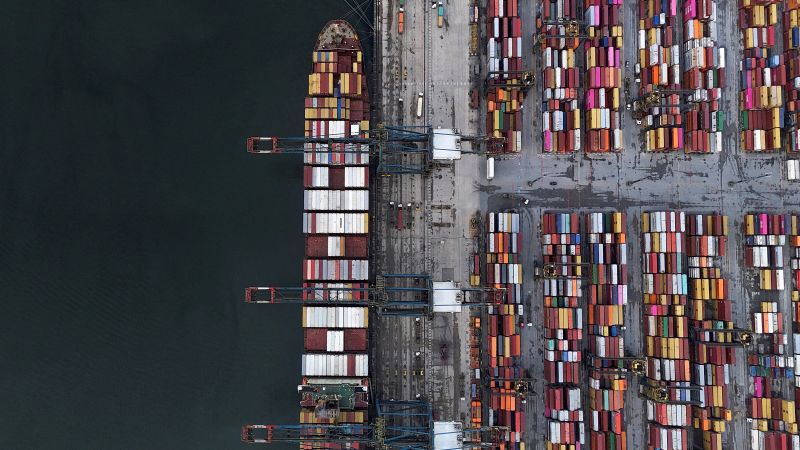In a significant escalation of his administration’s trade policy, former President Donald Trump announced sweeping executive actions this Wednesday. These decisive moves are poised to fundamentally reshape global commerce, targeting key nations and industries with substantial new tariffs. The White House has been intensely focused on crafting these policies, signaling a commitment to a redefined international trade landscape.
Central to these new measures is the imposition of a crippling 50% tariff on imports from Brazil, effective early next month. This dramatic increase, an additional 40 percentage points, is justified by the Trump administration through accusations of “serious human rights abuses that have undermined the rule of law in Brazil.” This move comes amidst heightened diplomatic tensions between the two nations.
The executive order explicitly links the tariff increase to what it describes as the Brazilian government’s “politically motivated persecution, intimidation, harassment, censorship, and prosecution of former Brazilian President Jair Bolsonaro and thousands of his supporters.” This stern language highlights the political undercurrents driving the economic sanctions against the South American nation.
Despite the hefty tariff, the impact on Brazil’s major exports to the United States appears to be limited. Significant products such as orange juice, Embraer aircraft, oil, coal, minerals, and various chemicals, including Brazil nuts, are exempt from the new duties. However, coffee, a vital Brazilian commodity, will notably face the higher tariff rate.
In a separate presidential proclamation, Trump also levied a “universal 50% tariff on imports of semi-finished copper products,” encompassing items like pipes, wires, and sheets, as well as “copper-intensive derivative products.” This strategic move is characterized as vital for US national security, aiming to create a “level playing field” for American copper businesses and foster a robust domestic copper industry.
The announcement of the copper tariffs was largely anticipated by investors and businesses, though the precise scope remained uncertain. Following the White House’s clarification that refined copper, a critical manufacturing input, would be exempt, copper prices in New York plunged by 19% on Wednesday. This marked the largest single-day drop on record, reflecting market relief over the tariffs’ more limited nature than initially feared.
Furthermore, the Trump administration suspended the “de minimis exemption” for all countries, a tax perk that allowed duty-free shipments of goods valued at $800 or less into the US. This policy had been previously targeted during the US-China trade war, and its latest suspension effectively closes a loophole for cheap, duty-free packages to enter the country, particularly impacting major e-commerce platforms and their consumers.
The executive order specifies that Americans returning from international travel can still bring back up to $200 in personal items duty-free, or receive gifts valued at $100 or less without tariffs. Customs and Border Protection reports processing nearly 4 million such duty-free de minimis shipments daily, with a substantial majority originating from China and Hong Kong, indicating a significant volume of trade affected by this change.
These combined trade actions represent a broad expansion of the administration’s protectionist stance. While touted as measures to bolster national security and domestic industries, they could lead to increased prices for American consumers on a range of imported goods, further shaping the economic landscape both domestically and internationally amidst evolving global trade dynamics.






Leave a Reply